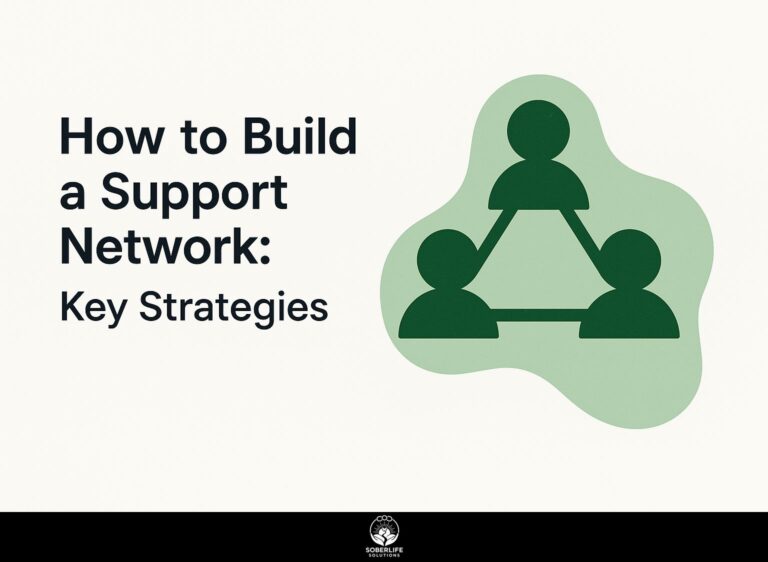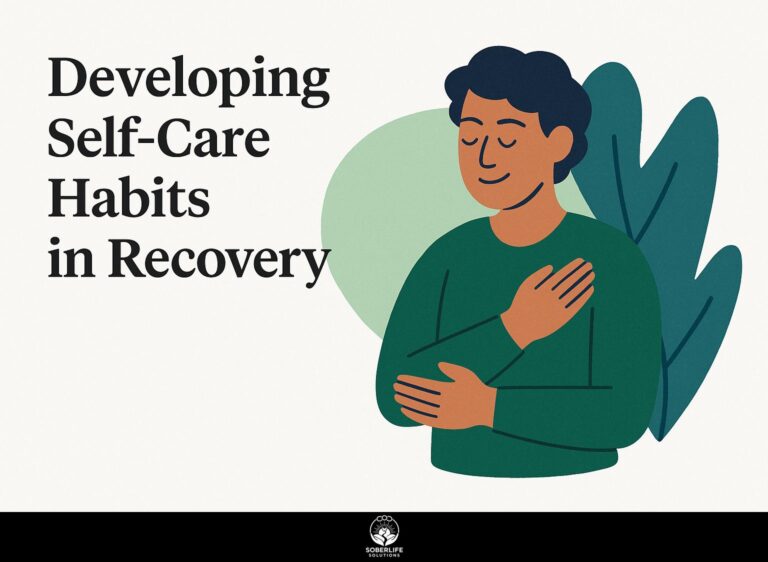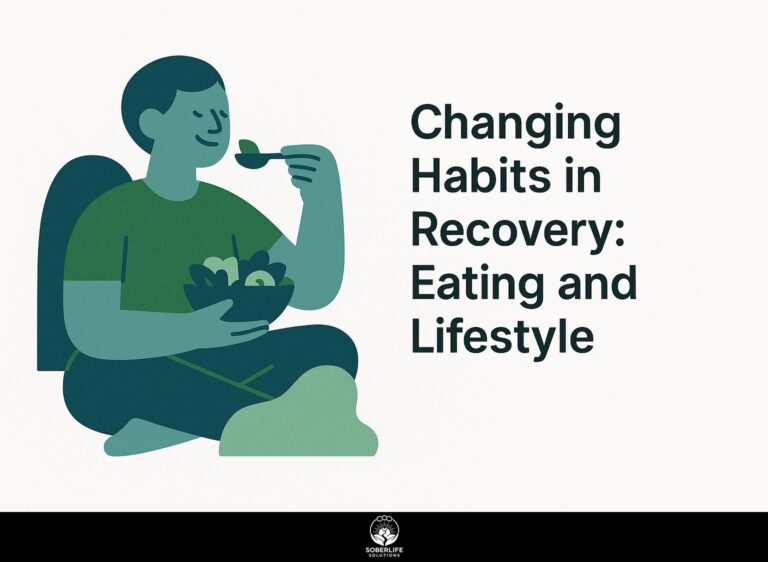SMART Goals Framework in Recovery
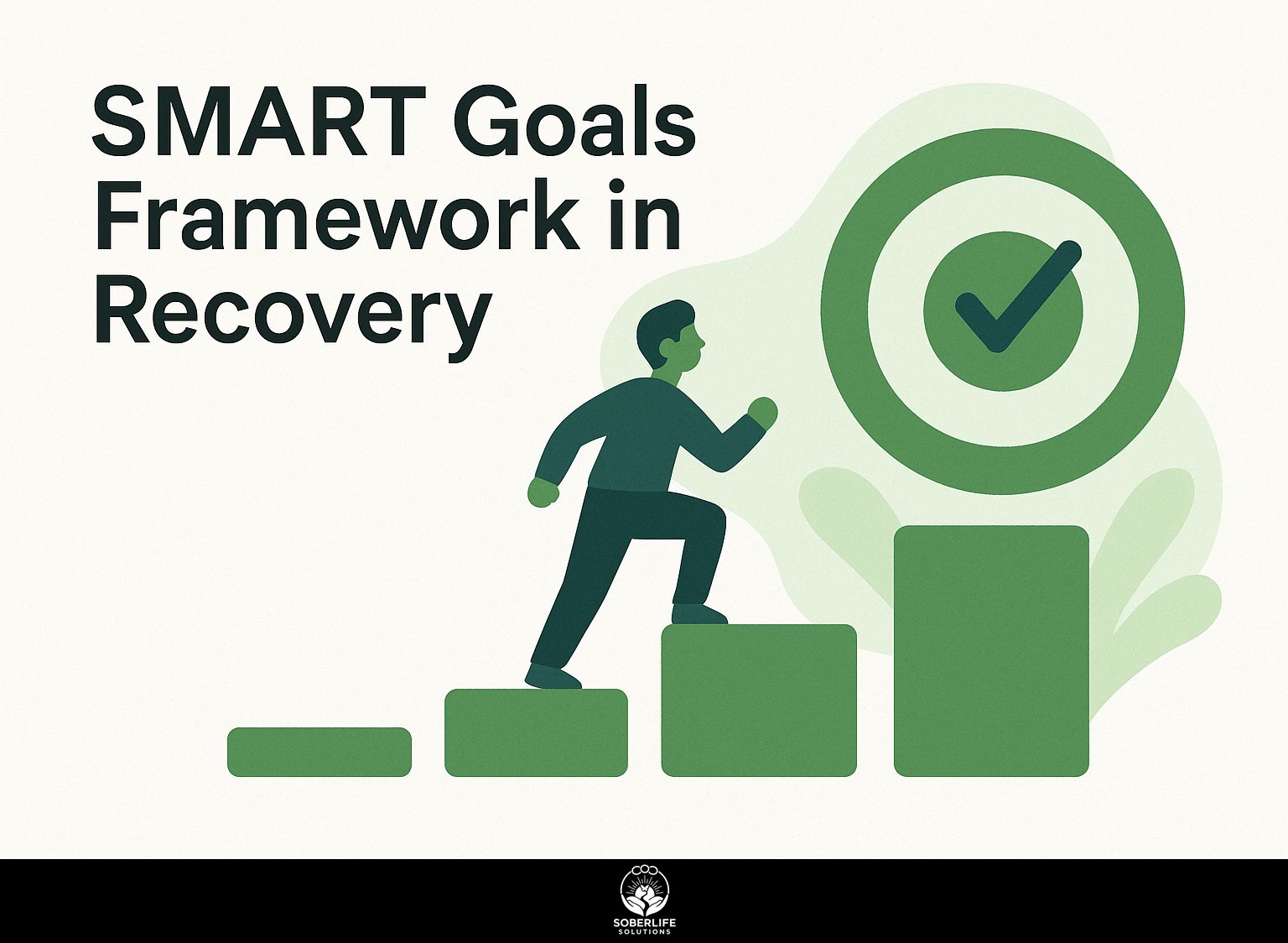
Starting recovery involves setting clear objectives, and using the SMART goals approach is a good method to achieve this. Created with input from SMART Recovery and the Substance Abuse and Mental Health Services Administration, this approach sets clear and achievable goals designed for people dealing with issues like Alcohol Use Disorder. This article will show you how to set achievable goals that support your recovery and help you keep improving over time.
Key Takeaways:
Definition of SMART Goals
SMART stands for goals that are clear, can be tracked, are realistic, matter to your objective, and have a deadline. It helps people set clear and organized goals.
To set goals that work, begin with clear details; say exactly what you want to reach, like “I want to lose 10 pounds in three months.”
Next, make sure you can measure your progress by using a fitness app or a food diary to keep track.
For achievability, assess if your goal is realistic based on your current lifestyle. It should be relevant to your overall health objectives, and finally, set a clear deadlineI will reach my goal by March 1st.”
This structured approach increases commitment and knowledge.
Importance in Recovery
Setting specific, measurable, achievable, relevant, and time-bound goals increases motivation and provides a clear way to monitor progress, which is important for staying on track during recovery.
SMART goals help in recovery because they are clear, can be tracked, realistic, important, and have a deadline. Instead of saying, ‘I want to stay sober,’ a clear goal might be: ‘I will attend three support meetings each week for the next three months.’
This clear commitment improves focus and accountability. According to research, individuals with defined goals are 42% more likely to succeed in behavior change. In fact, as detailed in the Cambridge University Press, goal setting interventions play a significant role in enhancing the effectiveness of behavior change strategies.
Apps such as Habitica or Strides can boost motivation by monitoring progress and sending alerts, supporting the formation of beneficial habits crucial for recovery (explore our techniques for encouraging recovery to maximize your efforts).
Specific Goals
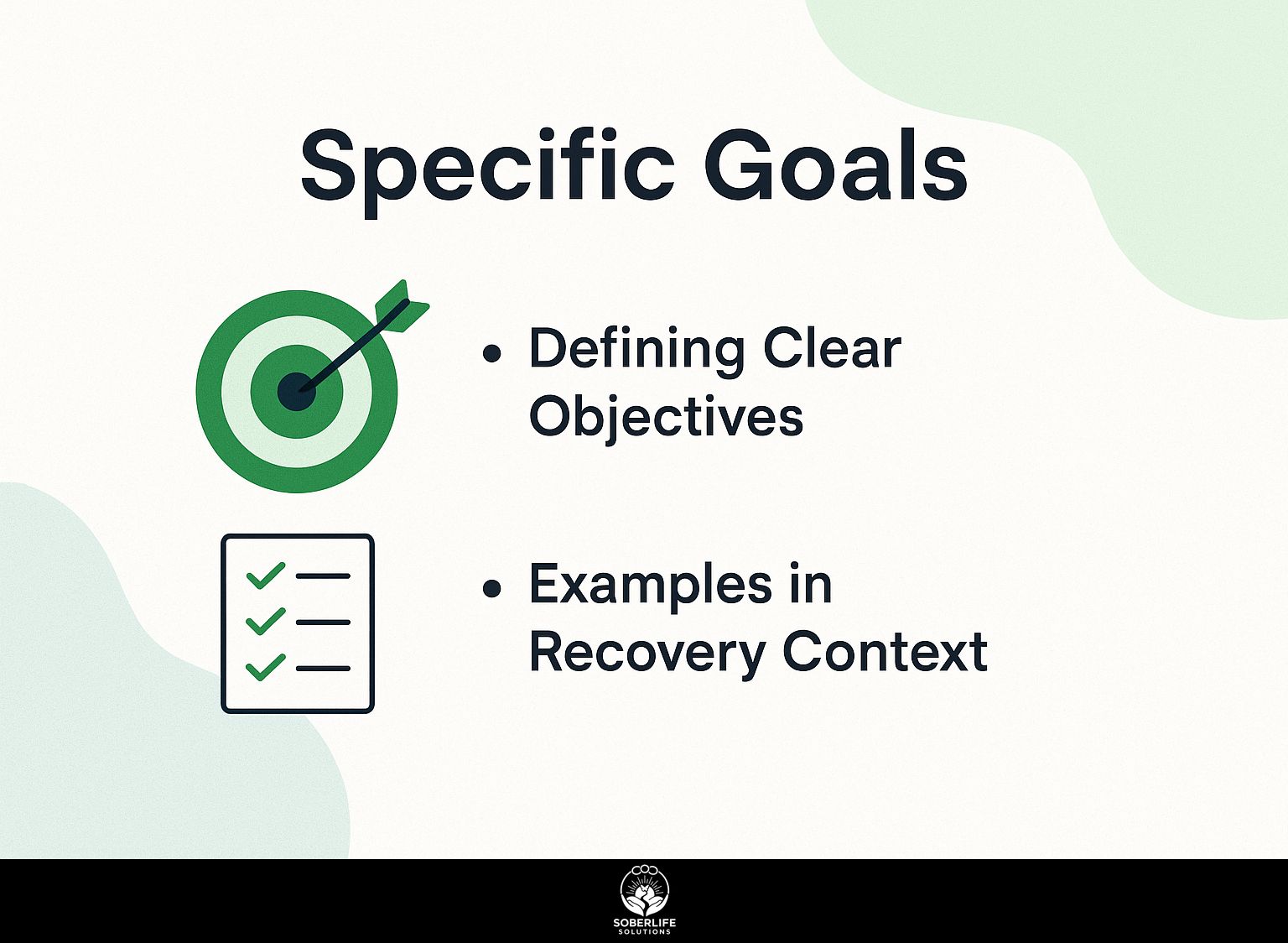
Setting specific goals helps people concentrate on what is most important in their recovery process. To enhance this focus, consider creating a structured checklist that supports key recovery tasks and priorities.
Defining Clear Objectives
To define clear objectives, break down recovery ambitions into actionable steps that can be easily tracked and modified.
Start by identifying the main goal, such as achieving sobriety. You can then break this down into smaller, specific actions.
- Attend weekly therapy sessions
- Engage in daily mindfulness exercises
- Join a local support group
Writing these details down gives you a clear plan and helps you stay responsible for your actions. As you move forward, frequently review these goals to revise and improve them, making sure they match your changing needs in recovery.
Books like ‘The Alcohol Experiment’ show how being open-minded is important in recovery.
Examples in Recovery Context
Examples of specific goals in a recovery context include measurable targets such as ‘reduce alcohol consumption by six drinks a week by the end of the month.’
Completing a 30-day sobriety challenge can provide a clear timeframe for commitment and immediate feedback on progress.
Participating in a family support group soon creates a feeling of belonging and helps you stay responsible by sharing experiences with others.
Going to weekly counseling sessions provides regular professional advice and strengthens good coping methods.
By setting these goals, you take on more responsibility. This means each success can be recognized, which increases your motivation and commitment to your recovery process.
Measurable Goals
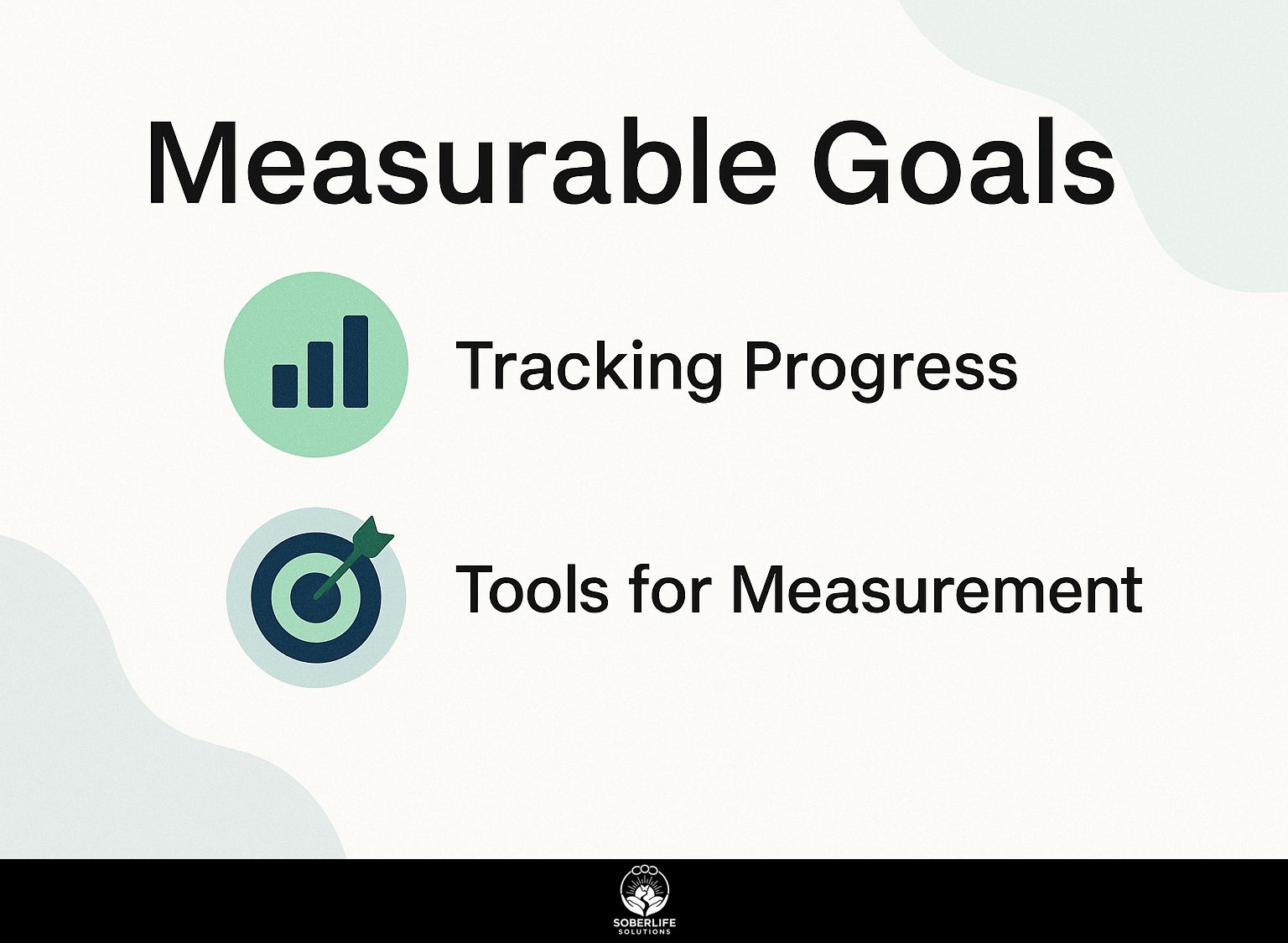
Setting clear goals helps monitor advancement, allowing individuals to recognize achievements and change their recovery plans when necessary.
Tracking Progress
Tracking progress effectively means using tools and methods that help people keep an eye on their recovery path frequently.
To facilitate this, consider using journals for daily reflections, mobile apps like Sober Grid for real-time support and community interaction, and spreadsheets for a more structured overview of your progress.
Creating an easy weekly checklist can support staying on track with recovery goals. If you’re wondering about how to best approach this, our insights on creating a sober checklist provide valuable guidance. This might include items such as:
- attending therapy sessions
- practicing coping strategies
- reaching out to a support network
By going through this checklist each week, you can see how your recovery is going and adjust your plan if needed.
Tools for Measurement
Many tools can measure recovery progress, offering clear data for self-checks and adjusting goals.
To effectively track your recovery, consider these three tools:
- Sober Time (free), which offers a simple interface for logging sober days and milestones;
- Recovery Path ($4.99/month), offers custom plans and tools for setting goals;
- My Recovery (free), which focuses on community support and sharing experiences.
Each tool has unique strengths, so choose one that aligns with your style. If connecting with others is important, choose My Recovery. If you like a simple approach, Sober Time is a better fit.
Achievable Goals
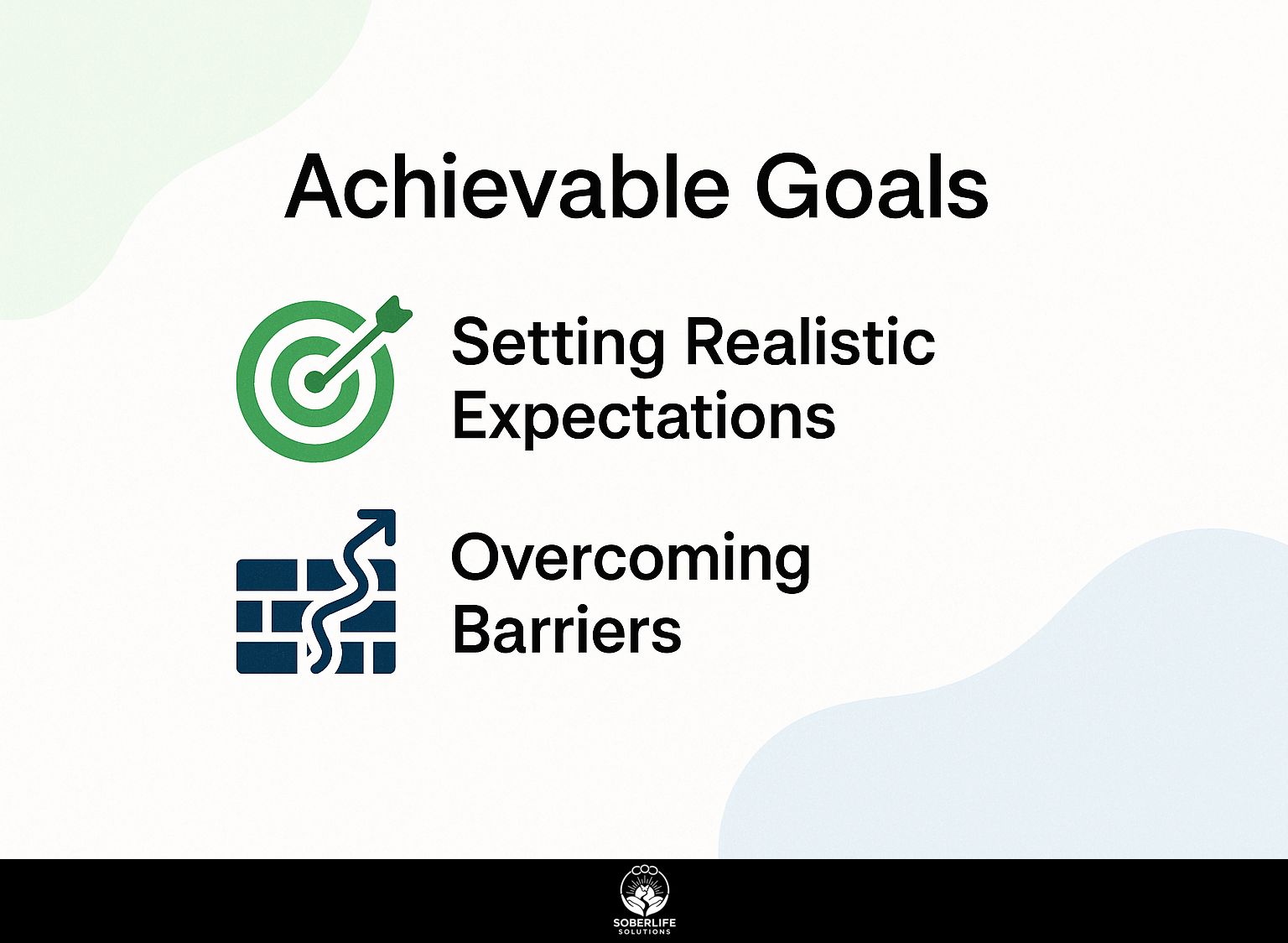
Setting achievable goals is important for staying motivated, balancing ambition with realism.
Setting Realistic Expectations
Setting realistic expectations involves assessing personal circumstances and capabilities to create attainable goals.
Begin by evaluating your available time and resources in relation to your goals.
Talk to a therapist or recovery coach to get specific advice and feedback for your situation. For instance, one client initially aimed to exercise five days a week but found it overwhelming.
After discussing this with her coach, she adjusted her goal to three manageable sessions, gradually increasing as she built confidence. This change improved her consistency and strengthened a positive mindset, showing the importance of being flexible when setting goals.
Overcoming Barriers
Recognizing and getting past obstacles is essential for setting realistic goals during recovery.
Common barriers include lack of support, financial constraints, and emotional challenges.
For instance, an individual named Sarah found strength by connecting with a local support group, where she shared experiences and gained encouragement from others facing similar issues.
Exploring community resources, such as local therapy services, can provide essential financial support.
Mental coping strategies, including mindfulness exercises, can help manage stress and build resilience.
By addressing these barriers proactively, individuals can create a sustainable path toward recovery and personal growth.
Relevant Goals
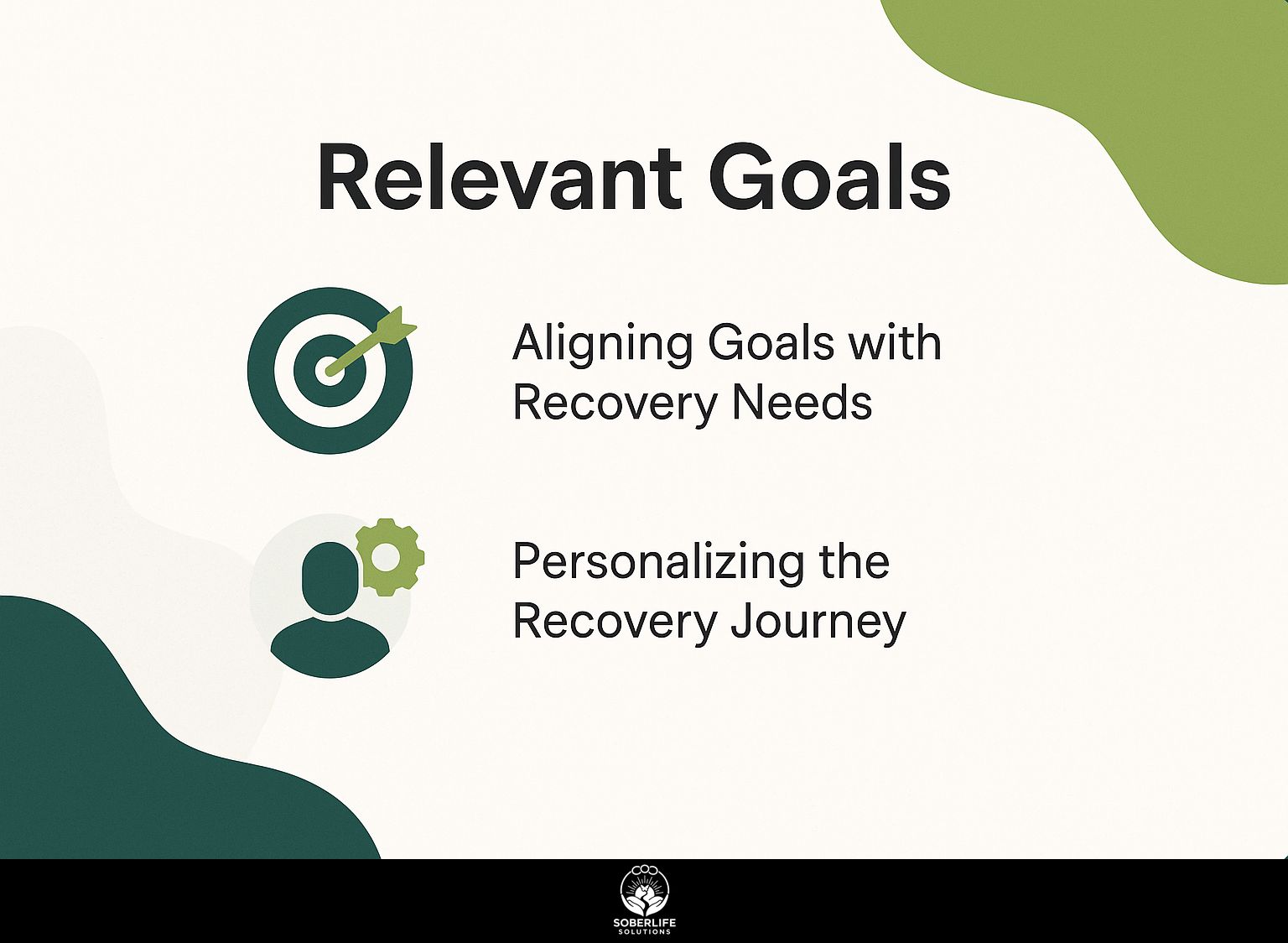
Setting meaningful goals helps each objective fit into a person’s recovery strategy and personal beliefs, creating a feeling of purpose.
Aligning Goals with Recovery Needs
Matching personal goals with recovery needs involves thinking deeply to find out what is really important to the person during their recovery.
Start by reflecting on your personal motivations for recovery. For example, if you want to improve your mental health, think about which parts of your life feel out of balance. Understanding how to set realistic goals in recovery can be immensely beneficial in aligning your personal aspirations with your healing journey.
Consult with a therapist to pinpoint areas for growth, such as emotional regulation or social connections. It’s important to change these goals often.
For instance, if Jane initially focused on daily meditation but found more joy in group therapy sessions, she transitioned her goal accordingly. Her skill to change keeps her healing process effective and significant.
Personalizing the Recovery Journey
Customizing recovery goals increases interest and drive, letting people adjust their progress to their own situations.
One effective method for personalizing recovery goals is to involve family and friends in the goal-setting process. This might involve arranging a meeting where everyone can share their ideas, ensuring all team members agree.
For instance, someone recovering from addiction may set a milestone to attend a weekly meeting with a family member who commits to joining them. Reviewing these goals each month helps you adjust when necessary and notice successes, making the process more rewarding.
This regular conversation encourages responsibility and flexibility, which are important in personal recovery paths.
Time-Bound Goals
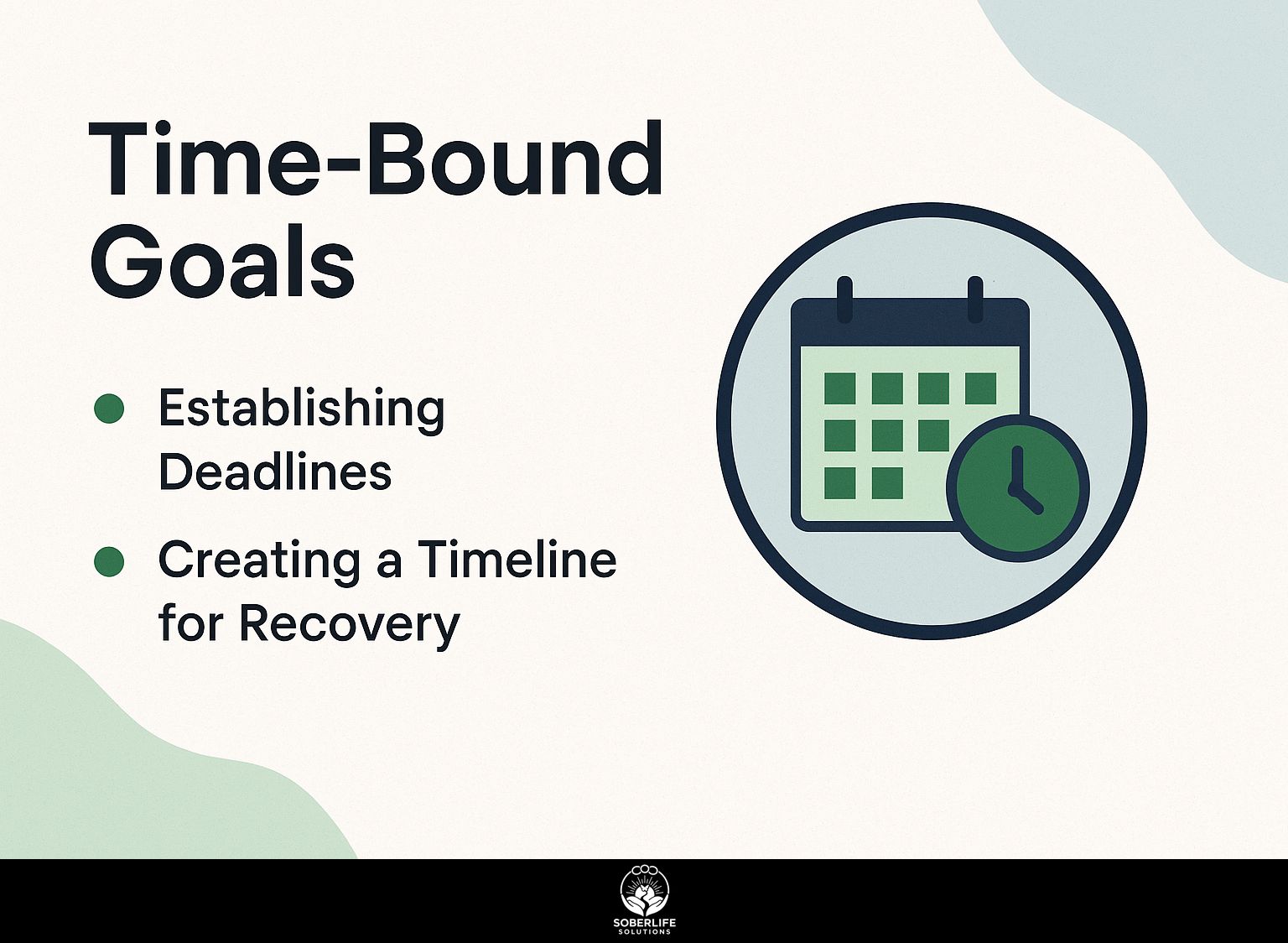
Setting deadlines for goals creates a sense of urgency and dedication during recovery.
Establishing Deadlines
Establishing deadlines helps individuals commit to their goals and create a structured path toward recovery.
To set realistic deadlines, begin by dividing your goals into smaller, manageable tasks. For example, if you’re working on a personal project, establish short-term deadlines for weekly milestones, like completing specific research or drafting a section.
Use calendar apps like Google Calendar or Trello to track these deadlines-setting alerts helps you stay on track. Regularly reviewing your progress can also aid in adjusting timelines when necessary.
A friend of mine greatly improved her writing habits and output by setting a firm weekly deadline.
Creating a Timeline for Recovery
Creating a timeline for recovery includes mapping out key milestones and deadlines associated with specific goals.
Start by identifying major milestones such as the first month sober, three months, and six months.
Next, plot these milestones on a calendar, ensuring each date is visible and realistic. Trello is a helpful tool; create a board with lists for each month and add cards for each important step.
For example, in the first month, you might include goals like attending weekly support meetings and journaling daily.
This visual progress tracker helps you stay organized and encourages you as you see your progress.
Frequently Asked Questions
What is the SMART Goals Method in Recovery?
The SMART Goals Method in Recovery helps individuals set clear and practical objectives. These objectives are defined, trackable, realistic, important, and have deadlines to aid in maintaining sobriety.
How can SMART Goals help in recovery?
The SMART Goals Framework can help with recovery by dividing big recovery goals into smaller, specific goals that can be measured, are realistic, important, and have deadlines. This allows for a more structured and achievable approach to recovery.
Can you apply the SMART Goals Framework in areas of life other than recovery?
Yes, the SMART Goals method can be used in different parts of life, like careers, learning, self-improvement, and more. It is a useful and efficient way to set goals for any purpose.
What makes SMART Goals helpful in recovery?
The SMART Goals Framework is key in recovery because it offers a straightforward method for setting and reaching goals. It assists people in maintaining focus and motivation, giving them a feeling of achievement and advancement in their recovery process.
How can I make sure my goals follow the SMART criteria?
To check if your goals meet the SMART Goals criteria, ask if they are specific, measurable, attainable, important, and have a deadline. If your goals fit all these points, then they align with the structure.
What are some clear examples of specific, measurable, achievable, relevant, and time-bound goals in recovery?
Examples of SMART Goals in recovery might include going to a specific number of support group meetings each week, staying drug-free for a set number of days, or reaching a certain level of improved physical or mental health within a set period.

